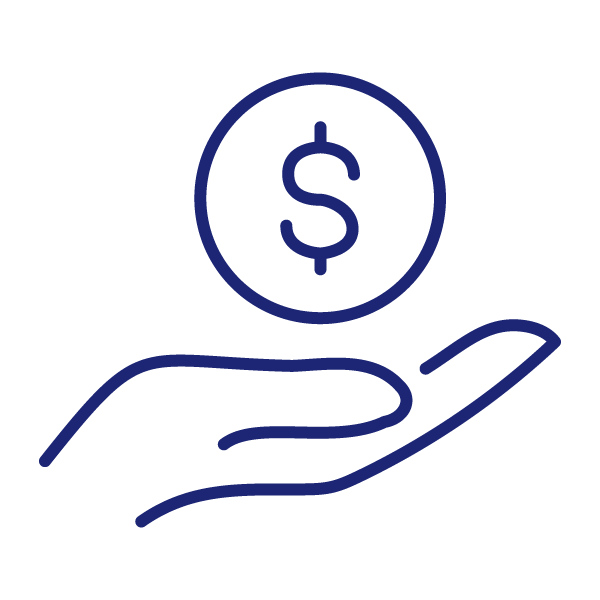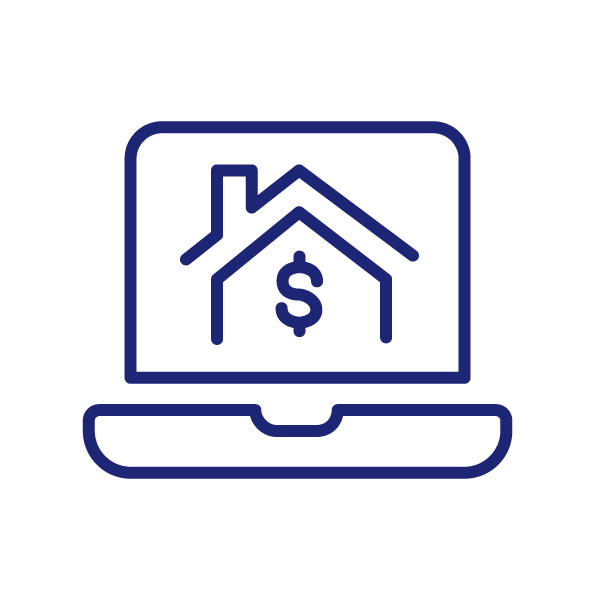Whether it’s your very first mortgage or you’re preparing for a mortgage renewal, finding the right option to suit your needs is always important. One vital factor that all homeowners will need to consider as they weigh their options is interest. A home is one of the largest purchases most people will make, and the amount of interest paid over time is significant. Understanding two of the main types of mortgages, fixed rate and adjustable rate mortgages, will help you make an informed decision and find what’s best for you.
What’s a Fixed Rate Mortgage?
Just like the name suggests, a fixed rate mortgage gives homeowners a set interest rate that is locked for the duration of their mortgage term. Fixed rate mortgages are the common choice for many Canadian homeowners. The rate is set for the entirety of the term and not impacted by market fluctuations.
Benefits of a Fixed Rate Mortgage
- Consistent payments for the entire mortgage term
- Not impacted by rate changes
What’s an Adjustable Rate Mortgage?
An adjustable rate mortgage is a mortgage with a variable interest rate where both the mortgage rate and the payment amounts go up or down with the rise and fall of interest rates. The amount going towards the principal portion of the mortgage payment will remain consistent but the amount going towards the interest portion of the mortgage payment may fluctuate.
Benefits of an Adjustable Rate Mortgage
- Payments will decrease when interest rates go lower
- Can switch to a fixed rate without penalty*
- Typically have lower mortgage penalties if you need to break your mortgage early
Not All Variable Rate Mortgages Are the Same
As you’re looking into the mortgage options available, you may notice a few differences among variable rate mortgages. One option provided by some lenders is a variable rate mortgage with fixed payments. With this type of product, your mortgage interest rate will vary with rate changes in the market, but your payment remains fixed for the entire mortgage term. If interest rates go up, less of your payment will go towards the principal and more will go towards the interest. In contrast, if rates go down, then more of your payment is going towards the principal and less to the interest. Depending on how the rates change, the length or amortization of your mortgage may be extended.
For variable rate mortgages with adjustable payments, the amortization will stay the same because the payments are being adjusted as the rates change. The amortization is the length of time that it will take to repay the mortgage in full, including interest. The same amount is going towards the principal, so your mortgage is paid off according to your expected timeline.
Fixed or Adjustable Rate? Which Is Right for You?
Now that you have a better idea of how fixed and adjustable rate mortgages work, you’re probably thinking about which is right for you. Take a look at the questions below to help you figure out which option is better suited for your needs.
| Your Perspective on Payments | |
|---|---|
|
A. I like predictable payments that fit my budget. |
B. I’m comfortable with changing payments if it means I may save money. |
| Financial Knowledge | |
|---|---|
|
A. I prefer a simplified option that’s straightforward and easy to understand. |
B. I consider myself financially savvy. I don’t mind taking a closer look at the details. |
| Forever Home or “Just-for-Now” Home? | |
|---|---|
|
A. I plan on staying put for a long time. |
B. A move to a new place is definitely an option in my future. |
| Is Paying Your Mortgage Quickly a Priority? | |
|---|---|
|
A. I’m fine with sticking to a steady pace to pay down my mortgage. |
B. The chance to pay my mortgage off faster would influence my decision. |
If you answered mostly A, a fixed rate mortgage may be the most beneficial. And if you answered mostly B, an adjustable rate mortgage could be just what you’re looking for.
Other Factors to Consider When Choosing a Mortgage
Mortgage interest rates matter but they’re not the only thing you’ll want to think about for your future mortgage. Here are some other factors to consider as you compare your options.
 |
Payment Options: The flexibility to make lump-sum payments or increase your regular payments can help you become mortgage-free sooner. |
 |
A Mortgage That Moves with You: Transferable or portable mortgages can help you avoid expensive penalty fees if you move. |
 |
Property Tax Service: Some lenders will provide a property tax service with your mortgage, so you have peace of mind and one less bill to worry about. Learn More. |
Before you make your decision, reach out to a mortgage broker to see how an MCAP mortgage could work for you.
And find out what’s within your budget using our Mortgage Payment Calculator.
* MCAP homeowners have the option to convert their mortgage to MCAP’s current fixed rates at any time without penalty (providing their new mortgage term is at least five years).




